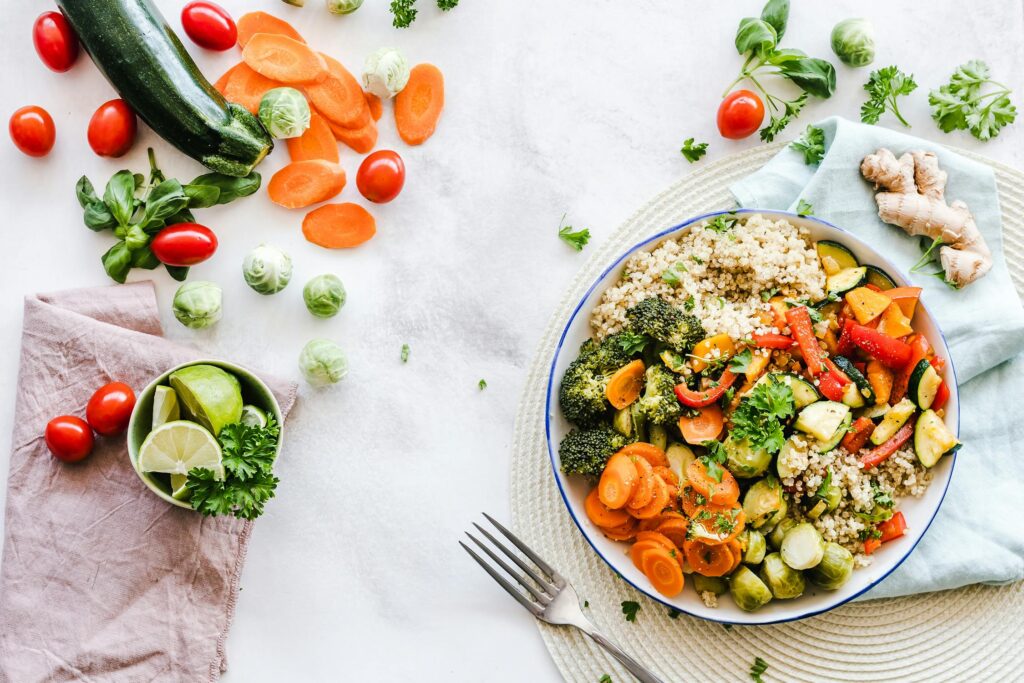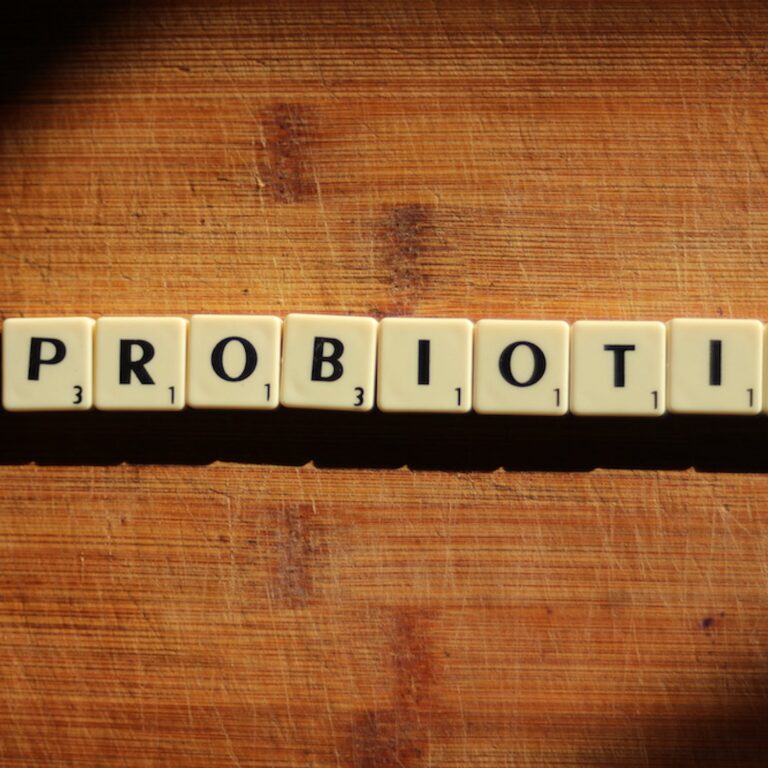To know how food matters is essential. The term healthy diet is meant for a balanced diet. A healthy food comprising of all the basic components of a balanced diet, is not only helpful to achieve healthy weight but also maintains it. To bring a change in your lifestyle, improve your eating habits. Here we get a big challenge because it is easy to say but difficult to practice. Once you decide to change your eating habits, it means you realize the fact that how good food matters for your health. To switch on a diet plan comprising both healthy and balanced food elements ,you must add more fruits and vegetables, whole grains, low-fat dairy, lean meat, fish or poultry to your meals. Remember that to move on a healthy diet within a short time is not an easy task. Small changes are not only easier to make at initial step but also lead to permanent changes that improve your health. In this blog we will discuss important facts about food. We will try to understand how food matters in our life .Following points are our mainstay
- What is a healthy and a balanced diet
- Why we should prefer healthy diet
- Cutting off unhealthy stuff from your diet
The food we eat provides the nutrients and energy to our bodies that we need to drive different body functions properly. A balanced diet ensures that we get all of the essential nutrients that we need in the right proportions.
What is a Healthy and a Balanced Diet:
A balanced diet includes components from all the major food groups including carbohydrates, proteins, fats, vitamins and minerals.
Carbohydrates: Are a cheap source of energy. To make your diet healthy and balanced we must have a knowledge about good and bad carbohydrates. Always choose complex and whole-grain carbohydrates over refined ones .Good and healthful carbohydrates are further categorized as :
- Starches also called as complex carbohydrates including grain products like bread, rice, pasta and crackers
- Vegetables like corn, sweet potatoes and beetroot
- Fruits like apples, bananas and mangoes
- Grains like quinoa, brown rice and oats
- Pulses like lentils and kidney beans
- Dried fruits like dates and raisins
All of the above-mentioned carbohydrates are healthy sources of carbohydrates making meals energetic and nutritious.
Proteins : Proteins play an important role in building and repairing body tissues. Main sources are meat, fish, poultry, eggs, dairy products milk, yoghurt especially Greek yoghurt, cheese specially cottage cheese, nuts, and seeds _ almonds, pine nuts, walnuts, macadamias, hazelnuts, cashews, pumpkin seeds, sesame seeds, sunflower seeds, legumes, all beans and lentils.
Choose lean protein sources and limit proteins consumption gained from sources like red meat. The term lean is used for a source of protein that is low in saturated fats and also low in calories. Due to this reason, lean protein sources are preferred more than the non-lean protein sources.
Fats : Fats are required in a small portion to take a part in healthy and a balanced diet. There are four types of dietary fats categorized as:
- Monounsaturated fats
- Polyunsaturated fats
- Saturated fats
- Trans fats
Among these monounsaturated fats and polyunsaturated fats are “good or healthy fats”. Saturated fats and trans fats are “bad or unhealthy fats”. Try to limit foods high in saturated fats and avoid trans fats. Choose healthy and good fats.
Foods high in good fats include vegetable oils (such as olive, canola, sunflower, soy, and corn), nuts, seeds, and fish.
Sources of saturated fats are sausages, burgers, bacon, hard cheese, whole milk, butter, ghee, cream, ice-cream, palm oil and coconut oil.
Trans fats are present in fried foods, snacks like cakes, biscuits and pastries. Margarine made with hydrogenated oil also contains trans fats .
Vitamins and Minerals: Another important component of a healthy and a balanced diet. These are micronutrients our body needs to perform a vast range of normal functions. Major sources are fruits and vegetables that provide these micronutrients as human body is not able to produce by itself .
Vitamins are wonderful substances organic in nature , classified as either fat soluble or water soluble. Fat-soluble vitamins are including vitamin A, vitamin D, vitamin E, and vitamin K, dissolve in fat and tend to be stored in the body. Water-soluble vitamins (vitamin C and the B-complex vitamins, such as vitamin B6, vitamin B12, and folate) dissolve in water and only in this water –soluble form they can be absorbed by the body, and therefore cannot be stored. Water-soluble vitamins not used by the body are lost through urine.
Minerals are inorganic substances usually present in soil and water, which are absorbed by plants or consumed by animals. Some important minerals are calcium, sodium, and potassium, easily available to meet the requirements of a human body. A range of other minerals, commonly called as trace minerals (e.g. copper, iodine, and zinc) are needed in very small amounts. Our body needs some minerals in larger amounts like calcium to maintain bone and dental health .
Different kinds of foods including fruits, vegetables, whole grains, meats, fish, poultry, milk and dairy foods are the best sources to get all the vitamins and minerals. Other sources are dried beans, seeds, nuts and leafy green vegetables.
Hydration: Drinking enough water is a part of a healthy diet. Generally, 8 glasses per day are recommended to keep your body systems function properly. Limit consumption of sugary drinks.
Why We Should Prefer A Balanced Diet:
- To meet the needs of a body:
As a balanced combination consists of appropriate proportions of various nutrients, a balanced diet provides all the essential nutrients that are necessary for the body to function properly.
- To maintain a healthy body weight:
By taking a healthy and a balanced diet, your body gets all essential nutrients without overloading with excess calories.
- To lower the risk of various chronic diseases:
Eating a healthy diet that is high in fruits, vegetables, whole grains and lean protein can reduce the risk of various chronic diseases such as hypertension, diabetes, joint problems and certain cancers.
- To boost immune function:
A good healthy diet gives your body enough immunity to fight against different types of infections. It will act like a shield to protect you from various bacterial and viral illnesses.
- To improve mental health:
Mental health is a very important part of your overall health but unfortunately neglected. A good diet may contribute a lot to reduce the risk of anxiety, depression and other mental health disorders. Both a healthy body and a healthy mind are able to pursue the dreams in a better way.
Cutting off Unhealthy Food
After realizing the fact that how good food matters, next thing we should know is what foods are unhealthy? Only then we would be able to avoid unhealthy foods. Most of the time we don’t have knowledge about the foods we take in our daily routine whether these are healthy or not. Foods like highly processed foods, fast foods and most snack items are included in unhealthy foods. All these foods contain high content of sodium and sugar and deficient in nutrients like vitamins and minerals.”
Here we have a list of unhealthy foods including:
- Sugary items containing high content of sugar like cookies, cakes, sweets, chocolates and doughnuts etc.
- Carbonated soft drinks
- Products containing refined carbohydrates
- Potato chips
- Processed meat
- Instant noodles
So, these are few examples of foods that are commonly taken in everyday life. The pleasure and joy we take from junk food actually keep us away from knowing facts about their negative impact on our health. We must plan a strategy to avoid junk food as it is so addictive. Always plan your meals and snacks for everyday routine. Prefer healthy snacks and meals and try to take on time. Don’t take anything between scheduled meals and snacks. Drinking plenty of water is also helpful to overcome food cravings. Our emotional status, lack of sleep and stress promotes eating unhealthy food and unnecessarily. By coping stress and having enough sleep can help to avoid it.
More than anything else, it’s your determination and will power that will keep you on track in the journey of health and fitness. Unless you make up your mind, no tip or trick will work.
Conclusion
Now we can understand the fact that how food matters and eating a healthy and a balanced diet is especially important to provide essential nutrients to our body. As the body needs a variety of substances to grow and stay healthy ,eating a variety of foods in moderation is a best strategy. Always remember balance is a key to a healthy body. To avoid eating unhealthy and unnecessarily is another rule to implement to achieve the goal of good health.




